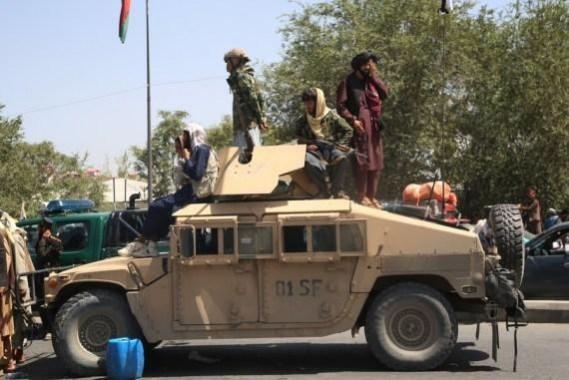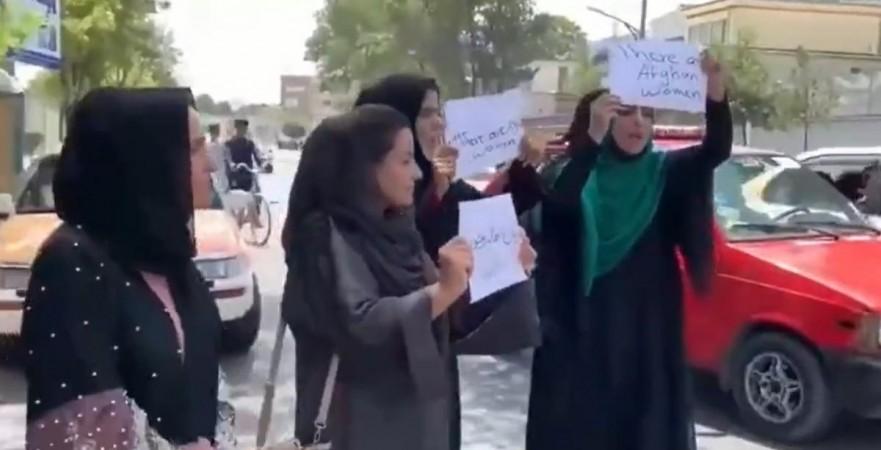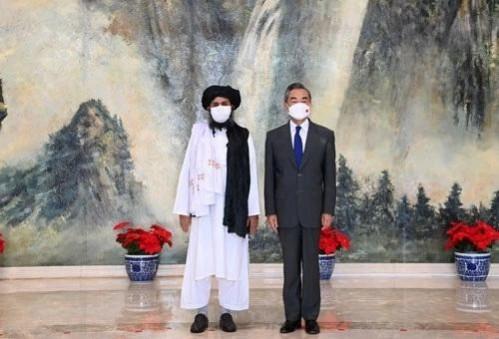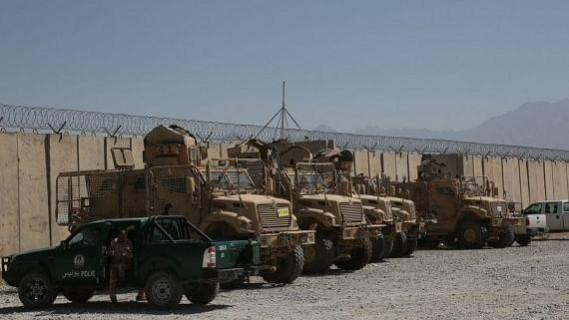As the Taliban are now inching closer to forming a government in Afghanistan, a critical question has come to the fore -- how will the newly formed dispensation get the necessary financial resources to run the country.
One of the most critical tasks at hand for the Taliban would be to ensure stability of the economy and containing the depreciation of the Afghani -- the currency of the country. And for that the Taliban 2.0 would need -- some recognition and acceptability -- on the global platform.

But that will not be easy to acquire.
"The international community will not easily accept the Taliban. A Taliban led government is clearly not the same as any other government and it is not going to change -- they would need foreign aid to flow in but that is something that may not happen. We will have to wait and watch," Subhomoy Bhattacharjee, Senior Adjunct Fellow at Research and Information System for Developing Countries (RIS) said.
With the Taliban coming in, flow of aids and private remittances has come to a halt.
For the last few years, about 75 per cent of the public spending in Afghanistan was financed by grants.
The World Bank said that with an influx of aid since 2002, Afghanistan sustained rapid economic growth and improvements against important social indicators for more than a decade. Annual growth averaged 9.4 per cent between 2003 and 2012, driven by a booming aid-driven services sector, and strong agricultural growth.
Yet, the US-led West is also under pressure to engage with the Taliban, which is getting some traction in the neighbourhood, including Russia and Iran, two regional heavyweights, who wish to achieve their grand strategic objective of ejecting Washington permanently out of the region, even if it means engaging with the Taliban.
Oil supplies resumed
Iran has resumed supply of oil to the war-torn country and trade between Afghanistan and Pakistan has also once again picked up, reports say.

A pick up in trade -- rather imports -- would mean that the revenue generated from the customs duties would somehow be intact.
Shakti Sinha, Honorary Director Atal Bihari Vajpayee Institute of Policy Research and International Studies, MS University pointed out that the new "government" under the Taliban would be able to garner "some money" from customs and import duties, which will be just enough to pay the government officials.
However, this would hardly keep afloat the Taliban, which would not be able to sustain itself without 360-degree foreign concurrence.
Desperate for foreign aid
The Taliban are desperately hoping that the inflow of foreign aid resumes at the earliest. Besides, they would want immediate access to the $9.5 billion international reserves that Afghanistan has in various international banks.
While the jury is out on the Taliban 2.0 regime, several foreign policy pundits have opined that given their economic vulnerability at an existential level, the Taliban will be forced to put up a "far more liberal face" so that gain some legitimacy and recognition from the global community.
"Unlike the austere, anti-modern Taliban regime which came to power in 1996 in Afghanistan, Taliban 2.0 has not rejected modernism and realises the importance of engaging with the outside world. It finds its roots in office and college goers, in towns and villages, who are tired of corruption and weary of the ethos of the Western liberal world," Sinha said at an event organised by India Writes Network.

"They would have no money left for security or other developmental work. The Taliban would need foreign aid to resume and hope that they get access to the reserves that have been frozen. Given this situation, the Taliban rule is expected to be very different from what we had seen earlier," Sinha, speaking to India Narrative, said.
Awkward situation for both US and Taliban
A Bloomberg report said that the situation is awkward for both the US and the Taliban. "Each side wants to prevent Afghanistan from turning into a key staging ground for Islamic State fighters to plot global terrorist attacks, but they also find it politically unpalatable -- if not impossible -- to cooperate," it said.

Earlier, at a press briefing, when asked about US-Taliban co-operation and whether that would continue beyond the evacuation exercise, White House Press Secretary Jen Psaki said, "I don't want to get ahead of where we are."
Despite its attempts at a makeover to form a legitimate "government", the Taliban's medievalist "head chopping" and "stoning women to death" image is hardly going to disappear anytime soon. And on the margins a battle between "realists and the pragmatists", who wish to engage with the Taliban and the "idealists", who are still seeking justice for the Taliban's past crimes has only just begun.








![BJP fields Tashi Gyalson for Ladakh; drops sitting MP [details]](https://data1.ibtimes.co.in/en/full/797185/bjp-fields-tashi-gyalson-ladakh-drops-sitting-mp-details.jpg?w=220&h=138)








![BJP fields Tashi Gyalson for Ladakh; drops sitting MP [details]](https://data1.ibtimes.co.in/en/full/797185/bjp-fields-tashi-gyalson-ladakh-drops-sitting-mp-details.jpg?w=220&h=135)